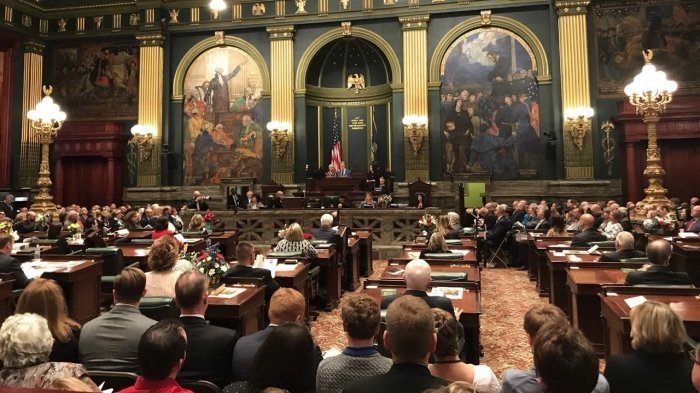A
Pennsylvania Senate panel heard arguments last week for and against a proposal that would allow bars, taverns and social clubs to install video-gaming terminals like those already in place at a few dozen truck stops across the state.
The proposal comes amidst lobbying between competing groups, including the traditional gambling industry and the proprietors offering so-called games of skill, video-game style devices found in convenience stores and similar locations across the state, The Meadville Tribune reports. Proponents of allowing skill games argue that they should not be treated as games of chance, like slot machines and video-gaming terminals, because whether or not the player wins depends on their skill at playing the game.
A Beaver County judge in 2014 ruled that the skill games are legal. Skill games proponents have filed a legal action seeking to get the state Commonwealth Court to confirm that decision, said Paul Goldean, chief administrative officer of Pace-O-Matic, a manufacturer of skill game devices.
Senate Bill 1256, authored by Senate Majority Leader Jake Corman, would change state law to not only allow for video-gaming terminals in bars and taverns to begin regulating games of skill similar to the way the competing devices are regulated.
The legislation is facing stiff opposition. Goldean said that Corman’s bill “would kill the skill game industry and dramatically put slot machines in every business across the Commonwealth.”
The state’s casinos oppose the legislation, as well, said Chris Albrecht, a senior vice president with Harrah’s Philadelphia. “We believe this bill will result in substantial loss of gaming tax revenue, revenue for the Pennsylvania Lottery and job loss,” he said. “We estimate this gaming expansion could add up to 85,000 gambling machines.”
The state’s tavern industry has embraced the proposal to legalize an expansion of video-gaming terminals as a possible revenue source for establishments that have been devastated by the COVID-19 business shutdowns. “More than one in eight (taverns) has never been able to reopen since March. In the next month, another five percent say they will close,” Jim DeLisio, owner of the Racehorse Tavern in York County told lawmakers.
Goldean said that the skill games should not be treated the same as the video-gaming terminals. “We cannot and do not compete with video gaming terminals,” Goldean said before the Senate Community and Economic Development committee.
The Pennsylvania Lottery estimated that there are skill game devices in 28 percent of the locations that sell Lottery tickets. “Each day these machines are taking in money that would otherwise be directed to Pennsylvania Lottery games” Lottery executive director Drew Svitko said in testimony. “These are lost sales that could help generate funds for the critical senior programs and services that are funded by the Lottery.”
Thanks to a 2017 update to the state’s gaming laws, Pennsylvania already has video-gaming terminals at 36 truck stops across the state. Those gaming terminals are connected to a centralized computer system which allows the state to conduct audits to ensure that the operators are paying the proper amount of tax, according to testimony from the Pennsylvania Gaming Control Board.
No immediate vote on Corman’s bill is planned. GOP state Sen. Thomas Killion of Delaware County said that Tuesday’s hearing “is the beginning of the process” as lawmakers negotiate whether and how to amend the legislation.



